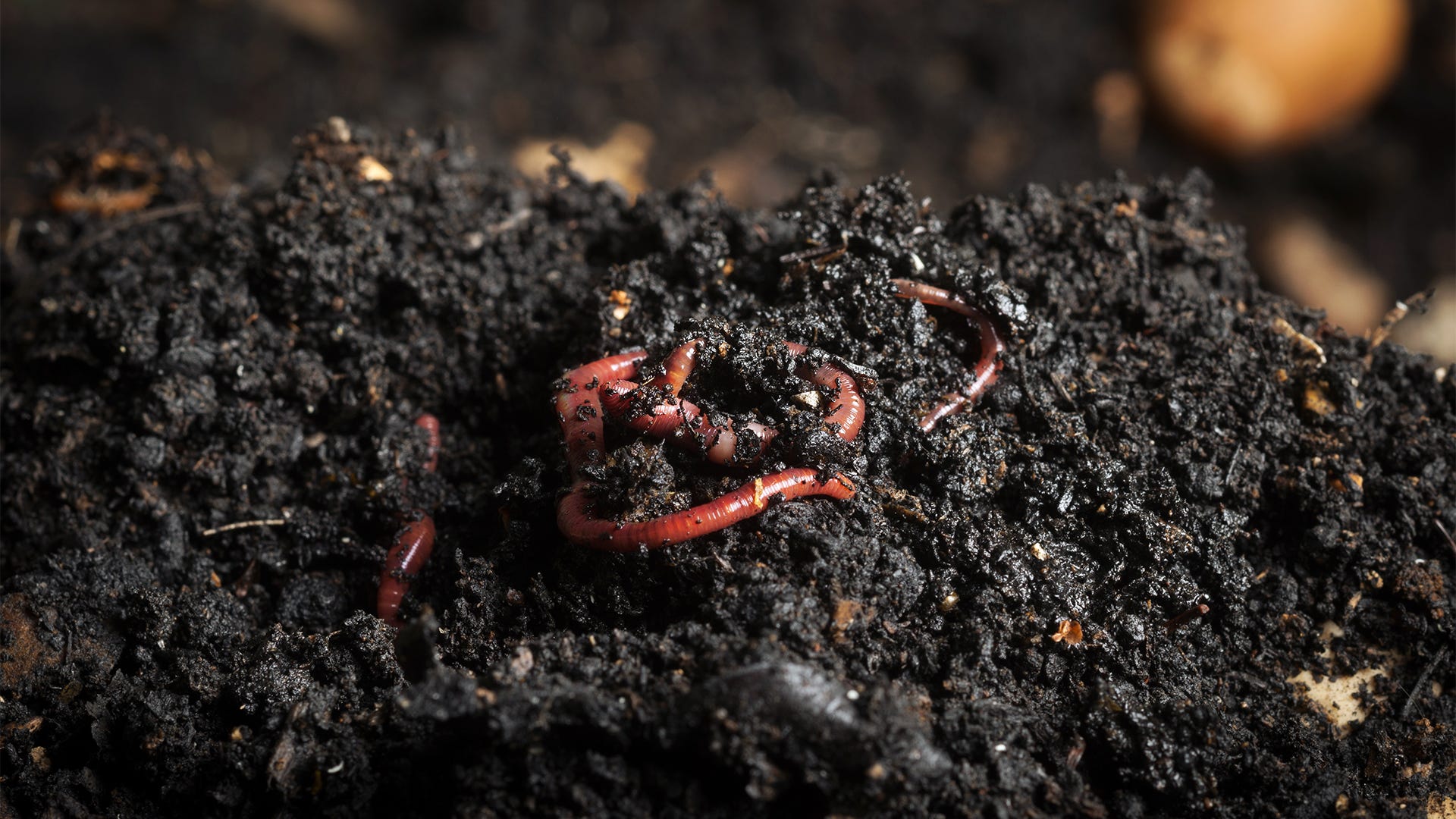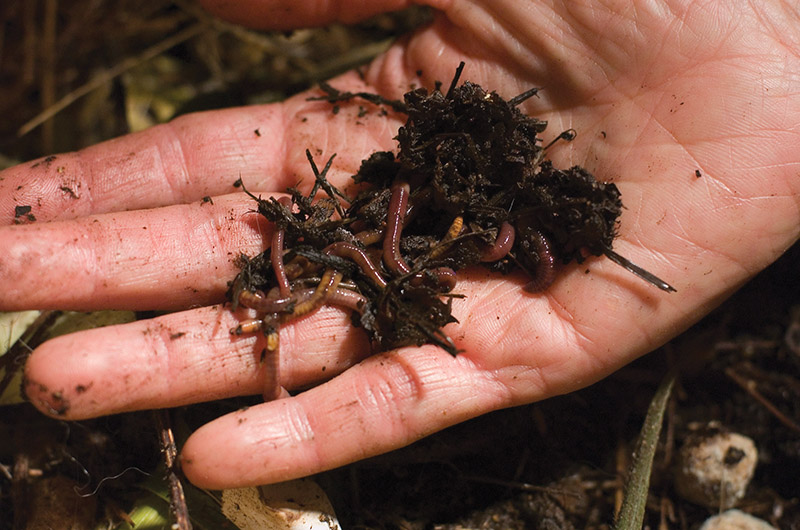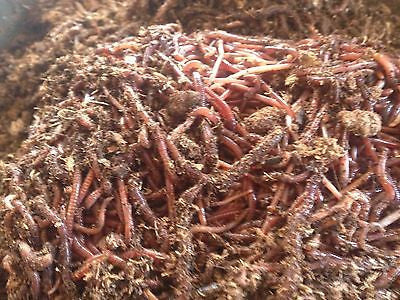Red Wiggler Worms Demystified: Opening the Tricks of Vermiculture for Greener Living and Nutrient-Rich Soil
In the realm of sustainable methods for improving dirt top quality and promoting eco-conscious living, red wiggler worms play an essential yet frequently neglected role. Red Wiggler Worms. Understanding the complexities of caring for these worms, maximizing their atmosphere, and using their spreadings can lead to a greener way of life and much healthier soil for plants to grow.
The Function of Red Wiggler Worms
Red Wiggler worms play an essential duty in composting systems by efficiently breaking down raw material into nutrient-rich castings. These ravenous eaters consume a selection of organic materials, such as kitchen area scraps, lawn waste, and paper items. As they feed, the worms' digestion procedures damage down the raw material into a penalty, dark, and nutrient-dense product referred to as worm spreadings or vermicompost.
The castings produced by Red Wiggler worms are very useful for soil wellness and plant growth. They are abundant in important nutrients like phosphorus, nitrogen, and potassium, which are crucial for sustaining healthy and balanced plant advancement. In addition, worm castings include advantageous germs and enzymes that assist enhance dirt framework, boost water retention, and enhance nutrient uptake by plants.
Benefits of Vermicomposting

It improves soil framework, improves dirt oygenation, and increases dirt wetness retention. Vermicompost additionally enriches the dirt with essential nutrients like potassium, nitrogen, and phosphorus, promoting plant development and overall dirt fertility.
Furthermore, vermicomposting supports sustainable horticulture techniques by supplying a chemical-free and all-natural choice to synthetic plant foods. Red Wiggler Worms. This eco-friendly technique not just enriches the soil yet additionally aids decrease dependence on hazardous chemicals, advertising a greener and extra lasting way of gardening
Setting Up a Worm Bin
When establishing a worm bin for vermicomposting, proper setup is essential to make certain the success of the composting procedure. The very first step in establishing a worm container is choosing an appropriate container. This can be a plastic container or wooden box that offers sufficient space for the worms to move and has proper drainage holes to avoid waterlogging. Next off, a bed linens material such as shredded newspaper, cardboard, or coconut coir need to be included to the container. This bed linen offers a comfortable environment for the worms and aids keep dampness degrees.
After adding the bed linens, introduce the red wiggler worms to the container. The worms must then be given with food scraps such as fruit and veggie peels, coffee premises, and eggshells.
Regularly keep an eye on the wetness degrees and temperature in the worm container to make certain ideal problems for the worms. With proper arrangement and maintenance, the worm container will successfully convert natural waste right into nutrient-rich compost for your plants and click here now yard.
Harvesting Worm Castings
To successfully gather nutrient-rich worm castings from your vermicomposting system, a methodical harvesting approach is vital. When it comes time to collect the worm castings, there are a few vital actions to follow to make certain an effective process. First of all, quit including fresh food scraps away of the worm bin for a couple of weeks prior to collecting. This motivates the worms to move sideways with fresh bedding and food, making it much easier to dig the spreadings from the other side.

Troubleshooting Common Issues
Recognizing and attending to common obstacles that may arise throughout the vermicomposting process is vital for maintaining a healthy and balanced and productive worm container. Including excess food scraps can lead to an accumulation of dampness and acidity in the worm container, potentially hurting the worms. An additional problem is undesirable odors originating from the worm container.
Additionally, if the worm populace is declining or the worms show up harmful, maybe due to environmental stress factors such as severe temperatures or pH degrees. Keeping track of Resources these factors and making needed changes is vital for the health of the worms. By troubleshooting these usual concerns quickly, vermicomposters can make sure a smooth and successful vermicomposting process while preserving a growing worm population.

Final Thought
To conclude, red wiggler worms play a critical duty in vermiculture by damaging down raw material into nutrient-rich dirt. The advantages of vermiculture consist of greener living and enhanced soil quality. Establishing up a worm container is necessary for effective vermiculture, and gathering worm castings provides beneficial garden compost for horticulture. By understanding and troubleshooting usual concerns, individuals can unlock the keys of vermiculture for lasting living and healthier dirt.
As they feed, the worms' gastrointestinal processes damage down the organic matter right into a fine, dark, and nutrient-dense material recognized as worm castings or vermicompost.
The spreadings created by Red Wiggler worms are highly valuable for soil health and plant development. Adding excess food scraps can lead to a buildup of dampness and acidity in the worm container, potentially hurting the worms.Additionally, if the worm populace is declining or the worms show up unhealthy, it can be due to environmental stress factors such as extreme temperature levels or pH levels. Setting up a worm container is vital for successful vermiculture, and collecting worm spreadings supplies valuable compost for gardening.
Comments on “Red Wiggler Worms - Vital for Healthy and Efficient Gardens”